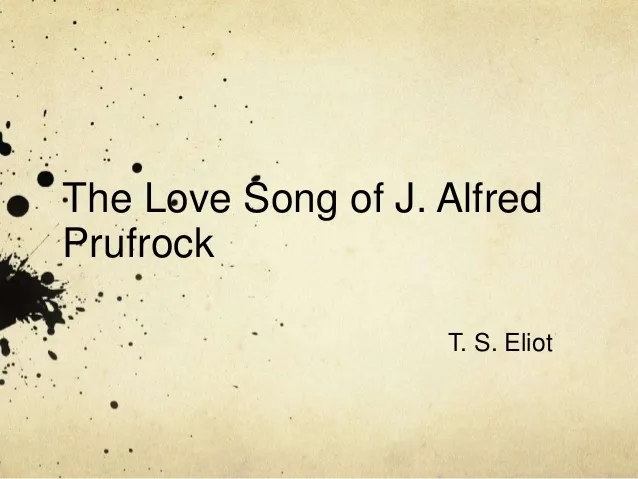This is my analysis of “The Love-Song of J. Alfred Prufrock” by T.S. Eliot. For some reason, this poem really inspired me. I hope you all appreciate any insight I might have created! I recommend reading the poem before my writing. You can find it here.
In “The Love-Song of J. Alfred Prufrock,” T.S. Eliot demonstrates the emasculation of the human psyche through poetical projections of Prufrock’s insecurities. The barriers between character and reader are destroyed as Prufrock invites you into the most private, inner confines of his mind: a realm where his most innate thoughts manifest as rhetorical questions that reveal the burden men carry because of the juxtaposition between genders and class. Eliot employs excellent imagery to coax his audience into the shoes of Prufrock, an insecure man whose experience renders him to raise others, namely women, on a pedestal of resentment.
The questions raised throughout Eliot’s piece implore one to realize that these questions are forms of resistance that detain us from conquering our insecurities. Respectively, Eliot begins Prufrock’s “Love Song” by entreating his readers to acknowledge the insecurities that will remain omnipresent throughout the poem, “What is it?” Readers obligingly ask themselves, only to discover that “it” is the detriment that hinders mankind. “It” is jealousy and envy men feel when compared with the superior “Michelangelo”. “It” is the labor-ridden past that pollutes the mind with resentment towards the unappreciative, undeserving higher class. And the females of this class, the end-goal for all men who seek to leave a legacy, reveal Prufrock’s insecurity through his psychological projection that dares him to “disturb the universe” and spark a passion with a woman he pitifully attempts to convince himself “[has]…known already”. However. This knowledge is gained through experience: an experience Prufrock is fond of, that intoxicates him with a “perfume…that makes [him] so digress”. Longing for a romance now lost, Prufrock is left in turmoil, confused and unaware as how to “presume”. Disillusioned by love, he generalizes that women will only settle for the highest caliber of man, a man that is wealthy and unweathered by the invasive approach of industrialization. This stereotype he convinces himself to be true destroys any effort he can attempt to approach a woman, for any indication of admiration or interest is made out of pity, not genuine courtship. The notion to believe in a serious romantic engagement with Prufrock is “not what [women] meant at all”, they would not “sing” to a man so lowly below them, a man with a past so vivid with indecencies and indecisiveness.
The intense imagery provided by Eliot compels readers to experience the cynicism Prufrock feels toward the higher classes. His contempt is easily understood when one realizes the motive to expand “the yellow fog” is to satisfy the wants of the rich and castrate the virility of the lower-class men in order to sustain a submissive, uninquisitive working class. The “yellow smoke” fogs “the window-panes” which would otherwise reveal how meaningless it is to “prepare a face” for the faces whose only discerning feature is the absence of dignifying hard work an d appreciation for mediocrity. Eliot eloquently expatiates on Prufrock’s dislike towards the seemingly nobler females with his analogous description of being dissected, an invasion nobody comfortably encourages. The audacity to subject Prufrock as a variable in a in a “formulated phrase” nullifies him, leaving him in ambivalence, to question his worthiness and degrade his self-worth.
Alfred J. Prufrock epitomizes the helpless romantic who is readily present throughout modern society. T.S. Eliot captures the adversity dealth with by the human psyche through the excellent utilization of figurative language and rhetorical questions. “The Love-Song of J. Alfred Prufrock” allows for an intimate connection between reader and character, revealing the deepest and most personal of insecurities to establish that we really aren’t so different.
